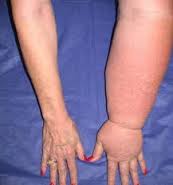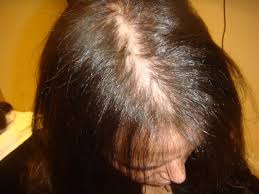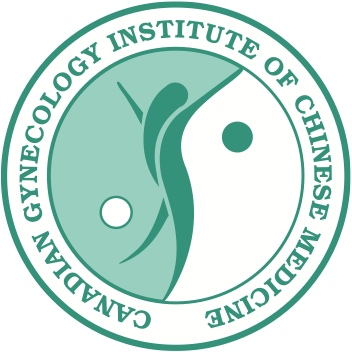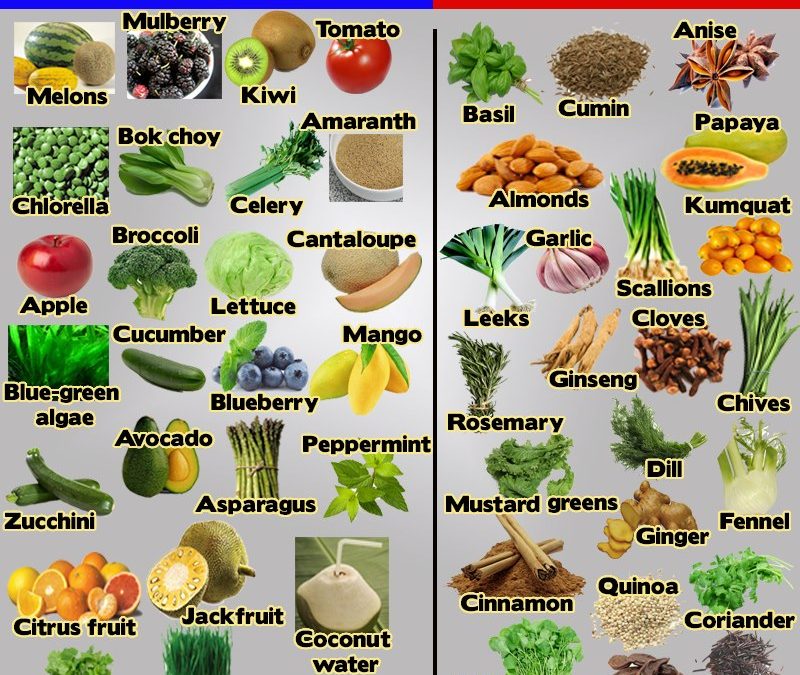Medicated diet is one of the cornerstones of Chinese Medicine. There is no better- and more cost effective way to care about your health. You have to eat anyways, so why not eat the right things! There are a few general guidelines that everyone should follow, otherwise eating for your constitution is key. If you are unsure of your constitution, please check with your TCM practitioner.
- Have regular meals at regular times – your body will regulate better!
- Use whole foods without preservatives and additives – you’ll function better!
- Prepare your food with thoughtfulness and love – they’ll taste better!
- Eat slowly, chew thoroughly, smile and enjoy your food – you’ll digest better!
And stay tuned for next weeks’ post about eating for excess type body constitutions.
Qi Deficiency
The Type: Poor appetite, slight abdominal distension after eating, tiredness, lassitude, pale complexion, feeling of weakness, loose stools, slight depression, tendency to obesity.
Considerations: When a person is low in energy, it is important not to tax the body farther by giving it foods that are difficult to digest. Making sure foods are warm and cooked ensures the body doesn’t have to waste energy doing it. Otherwise, eat meals with simple combinations and few ingredients to keep things uncomplicated. Eat smaller meals more often but at regular times, and focus intake on complex carbohydrates and veggies with neutral or sweet and warm flavors.
Eat:
- Light Grains: white rice, porridge (congee), oats, roasted barley, sweet rice, spelt
- Veggies: sweet potato, celeriac, squash, carrot, corn, parsnip, chick peas, black beans, kumara, peas
- Fruit: stewed fruit
- Meat: chicken, beef, lamb, liver, kidney, mackerel, tuna, anchovy
- Small Amounts: onion, leek, garlic turnip, pepper, fresh ginger, cinnamon, nutmeg, fennel, kitchen spices; molasses, dates, rice syrup, barley malt, palm sugar
Avoid: Excessive fluids with meals, over eating, missing meals, eating while working, cold natured or uncooked and raw foods, too many meats.

Yang Deficiency
Considerations: The same principles go for Yang deficiency, as for Qi deficiency, with an emphasis on warming foods.
The Type: Spleen Yang Deficiency: poor appetite, slight abdominal distension after eating, tiredness, lassitude, pale complexion, feeling of weakness, loose stools, slight depression, tendency to obesity, feeling of cold, cold limbs, edema. You should eat:
- Grains: rice (especially congee), oats
- Veggies: parsnip, sweet potato, onion, leeks
- Meat: lamb, beef, chicken, prawns, mantis shrimp
- Fruit: stewed fruits, chestnuts
- Spices: dry ginger, cloves, cayenne, cardamom, star anise, cinnamon, rosemary, turmeric, nutmeg
The Type: Kidney Yang Deficiency: low back ache, cold and weak knees, sensation of cold in the lower back, feeling of cold in general, weak legs, bright-white complexion, tiredness, lassitude, abundant clear urination, urination at night, apathy, leg edema, infertility in women, loose stools, depression, impotence, premature ejaculation, low sperm count, cold and thin sperm, decreased libido. You should eat:
- Grains: rice (especially congee), oats
- Veggies: parsnip, sweet potato, onion, leeks
- Meat: lamb, beef, chicken, prawns, mantis shrimp
- Fruit: stewed fruits, chestnuts
- Spices: dry ginger, cloves, cayenne, cardamom, star anise, cinnamon, rosemary, turmeric, nutmeg
Avoid: Excessive fluids with meals, over eating, missing meals, eating while working, cold natured or uncooked and raw foods.
- Grains: glutinous rice, millet
- Veggies: raw vegetables, sprouts and salads, tomato, spinach, soybeans, tofu, seaweeds
- Fruit: raw fruits that are whole and juiced, especially citrus fruits
- Other: salt, sweet foods with concentrated sweeteners, dairy products, vinegar, nuts and seeds, soymilk, refrigerated or iced drinks.

Blood Deficiency
The same principles go for Blood deficiency, as for Qi deficiency, with an emphasis on protein intake and foods rich in iron, folic acid and vitamin B12.
Building up protein levels is best achieved by consuming animal proteins, especially chicken. While it is possible through a vegetarian diet, it is generally more difficult.
The Type: Pale face, lips, nails and tongue; dry face and skin, hair falling out, floaters in vision, body aches, fatigue, weakness, dizziness, poor memory, depression, difficulty sleeping, headaches
Eat:
- High Quality Protein: especially chicken meat and soup, beef and pork liver, pork trotter; also pigeon, oyster, mussels, shark, eel, stocks and broths, bone marrow, eggs
- Grains: rice
- Veggies: green leafy veggies (rich in chlorophyll), wheatgrass, spinach, carrots, beetroot, parsley, fermented bean products (miso, tempeh)
- Fruit: lychee, coconut, gogi berries
- Other: black beans, seaweed, spirulina, black sesame seeds, stouts, Guinness, vegemite, marmite
Avoid: Excessive fluids with meals, over eating, missing meals, eating while working, cold natured or uncooked and raw foods.
- Bitter, sour, salty, pungent and hot foods
- Refined sugars
- Chemical additives
- Hormones

Yin Deficiency
Similar to nourishing Blood, nourishing Yin also focuses on a diet containing more seeds and beans, more high quality protein, and more soups and stews that contain more water.
The Type: Dizziness, tinnitus, vertigo, poor memory, difficulty hearing, night sweating, dry mouth and throat at night, low back ache, aching in bones, nocturnal emission, constipation, scanty dark urine, infertility, premature ejaculation, tiredness, lassitude, depression, slight anxiety
Eat:
- Grains: wheat, oats, rice, millet, barley
- Meats: pork, chicken, duck, pigeon, bone marrow, eggs, Spanish mackerel, sardines, oysters, mussels, clam, cuttlefish, squid
- Dairy: small amounts of butter, milk, cheese, and yogurt
- Veggies: kelp, spirulina, zucchini, squash, potato, sweet potato, string beans, beetroot
- Fruit: melon, apple, banana, mulberry, mango, coconut
- Other: tofu, tempeh, nuts and seeds, mushroom, white and black fungus (wood ears), adzuki beans, black beans, mung beans, peanuts, olive oil, flaxseed oil, almond oil
Avoid: warm, drying, bitter and pungent foods
- Spices: chilies, curry, cinnamon, garlic, ginger, basil, clove, wasabi
- Meats: lamb, prawns (shrimp), veal, pigeon, game birds
- Fruits & Veggies: citrus, onions, shallots, leeks
- Other: coffee, tea, vinegar, pickles, cigarettes, alcohol, vitamin B, corticosteroids, recreational stimulants (amphetamines, cocaine, ecstasy), non-steroidal anti inflammatories (ST Yin)
People can have different types of yin deficiency. Here are some of the most common types
Stomach Yin Deficiency: no appetite or slight hunger but no desire to eat, constipation, dull or slightly burning epigastric pain, dry mouth and throat especially in the afternoon, slight feeling of fullness after eating
- Also Eat: slippery elm powder, white wood ears, barley, millet, tofu, mung beans, asparagus, sweet potato, butter, milk, orange, mandarin, lychee, apple, banana, pineapple, plum, pomegranate
Lung Yin Deficiency: cough that is dry or with scanty sticky sputum, weak/hoarse voice, dry mouth and throat, tickly throat, tiredness, dislike of speaking, thin body or chest, night sweating
- Also Eat: pears, peach, apple, banana, fig, pawpaw, strawberry, tomato, string bean, seaweed, kelp, white and black fungus, spirulina, soy milk, tofu, tempeh, pork, oyster, butter, milk, cheese, pine nuts
Kidney Yin Deficiency: dizziness, tinnitus, vertigo, poor memory, difficulty hearing, night sweating, dry mouth and throat at night, low back ache, aching in bones, nocturnal emission, constipation, scanty dark urine, infertility, premature ejaculation, tiredness, lassitude, depression, slight anxiety.
- Also Eat: pork, pork kidney, duck, millet, barley, tofu, string beans, black beans, black soybeans, kidney beans, black sesame seeds, blueberry, blackberry, seaweed, black fungus (wood ears)
Stay tuned for our next article on eating for excess type constitutions. If you have any questions, please contact us! Remember, the food you eat is your best- and first line of defense against illness.
Caroline Prodoehl, R.TCMP, R.Ac
References:
McLean, W. & Lyttleton, J. (2002). Clinical Handbook of Internal Medicine: The Treatment of Disease with Traditional Chinese Medicine: Volume 2: Spleen & Stomach. University of Western Sydney, Australia.

